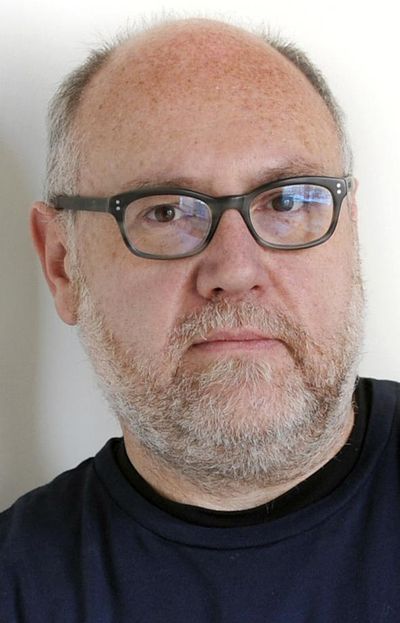Shawn Vestal: The ignorance epidemic is nourishing the coronavirus pandemic

The article was titled, ironically, “Evidence Over Hysteria.”
Written by a Silicon Valley marketing manager and published online March 22, the piece minimized the dangers associated with the coronavirus, criticized the scientific establishment for overreaction, understated the risks and proportion of “serious” cases, claimed the virus would “burn off” by itself when the weather warms, made glaring errors, warned conspiratorially that governors might impose martial law in a power grab and political elites would use it to fortify the welfare state, and claimed that public-health protections were going to undermine our basic freedoms and destroy the economy.
In short, the author made many of the arguments that remain common in right-wing media, among some politicians and economy-first pundits, in the circles of the far-right “liberty” movement and, all too often, with President Trump himself.
Carl Bergstrom, God love him, called baloney.
Bergstrom, a biology professor at the University of Washington who specializes in fighting misinformation, took to Twitter to debunk the “atrocious” article, piece by piece. He pointed out how badly the author misused scientific facts and practices, and noted that his lack of expertise in epidemiology was blatant.
“Imagine Shakespeare run through Google translated into Japanese, then translated back to English by someone who’d never heard of Shakespeare,” Bergstrom wrote in one tweet.
In another, he noted that the author made claims that were directly, and dramatically, contradicted by evidence he was citing himself: “This single piece of bait-and-switch should be more than enough to discredit the entire article. (The author) claims that only 1% of cases are severe, and then shows a data graphic suggesting that 19% are severe or worse (critical).”
Even as Bergstom was in the midst of a 30-tweet takedown, the website that published it, Medium, took the article down.
That’s the good news. The bad news is that another website quickly put the thing back up, and conservatives, including the Wall Street Journal, rushed to defend the author as a free-speech victim. Many of the ideas in the piece, as well as its misleading style of presenting bogus claims as scientifically based, are thriving, mutating, spreading.
The ignorance epidemic is nourishing the coronavirus pandemic.
Even as the toll grows and the early doubters, deniers and skeptics begin to shamefacedly come around, the political resistance to factuality that defines this era – a consistent rejection of knowledge and expertise – is burning like a wildfire.
That Medium piece is one thing. Many other people have been and continue to be dismissive of the coronavirus without bothering to pretend to be smart about it. In Idaho, Rep. Heather Scott irresponsibly urged her constituents to endanger themselves by resisting the state’s social-distancing order because it was “unconstitutional, un-American, and not the Idaho way.”
The Idaho way, apparently, follows a transmission chain.
Bonner County Sheriff Daryl Wheeler called on the Idaho governor to lift the stay-home order and accused health officials of misinformation. Idaho Rep. Tim Remington defied the order and held church services in Coeur d’Alene. Washington Rep. Matt Shea spread conspiracy misinformation online, naturally.
And Ammon Bundy, who led the far-right into a deadly frenzy at the Malheur National Wildlife Refuge, organized a public get-together in Emmett, Idaho, and proclaimed on Facebook that he wanted to get the virus himself, so he could help develop resistance to it.
Those are extremes, but they represent a significant number of people in our region – people who can spread a virus just as effectively as anyone else. Even among the slightly less conspiratorial-minded, too many people have been blowing this off from the start – downplaying risks, elevating the economy over lives, pushing unproven treatments, comparing it to the flu and dismissing it as media hype.
This was a signature pose on Fox News, particularly in the earliest days of the pandemic. You see the result clearly in polling data that show higher percentages of conservatives ignoring social-distancing measures.
An open letter signed by scores of journalists and journalism professors this week accused Fox of violating the “elementary canons of journalism.”
“The misinformation that reaches the Fox News audience is a danger to public health. Indeed, it is not an overstatement to say that your misreporting endangers your own viewers — and not only them, for in a pandemic, individual behavior affects significant numbers of other people as well,” the letter read.
“Yet by commission as well as omission – direct, uncontested misinformation as well as failure to report the true dimensions of the crisis – Fox News has been derelict in its duty to provide clear and accurate information about COVID-19.”
Bergstrom is a warrior against uncontested misinformation. He’s a busy man now, and I haven’t been able to arrange an interview over the past couple of weeks. But he’s said the misinformation crisis of the moment has mutated and spread faster than the outbreak itself, according to the UW website and interviews he’s given. And even if it only infects a relatively small part of the population, the impacts in a viral outbreak can be enormous.
Bergstrom’s UW colleagues have done vital and unmatched work in discovering and tracking information about this virus and its spread. His efforts to fight misinformation go hand-in-hand with that mission.
It’s not brand-new territory for Bergstrom and his colleague, Jevin West, the director of UW’s Center for an Informed Public. They have written a book about calling out such nonsense that will be published in August and they once proposed a course on the importance and ethics of calling out falsehoods.
The course, with a syllabus that went viral, was an attempt to teach students to navigate the modern environment ridden with conspiracy theories and lies by identifying it, “seeing through it, and combating it with effective analysis and argument.”
Clearly, it should be part of a national core curriculum.
